
Stacy W. Gray Lab
Research Lab Overview
All patients should have access to the tests, treatments and prevention strategies that will be most effective given their particular situation — that is the vision for precision medicine. However, it is well established that many cancer patients do not get the highest quality care that they desperately need. In Dr. Gray’s lab, researchers aim to realize the promise of precision cancer medicine for all patients through translational genomics. The Gray lab focuses on improving access to genomic testing and targeted therapies, developing innovative cancer prevention and screening strategies, eliminating care disparities, and rapidly translating innovative and effective new technologies into the clinic.
Stacy Gray, M.D., A.M., is a professor at City of Hope's comprehensive cancer center and Beckman Research Institute of City of Hope. She is the deputy director for City of Hope's Center for Precision Medicine and chief of the Division of Clinical Cancer Genomics. Dr. Gray completed her medical degree, a master's degree in public policy and her clinical training at the University of Chicago. She completed postdoctoral research fellowships in cancer communication at the University of Pennsylvania and in cancer outcomes at the Massachusetts General Hospital, Dana-Farber Cancer Institute and Harvard Medical School.
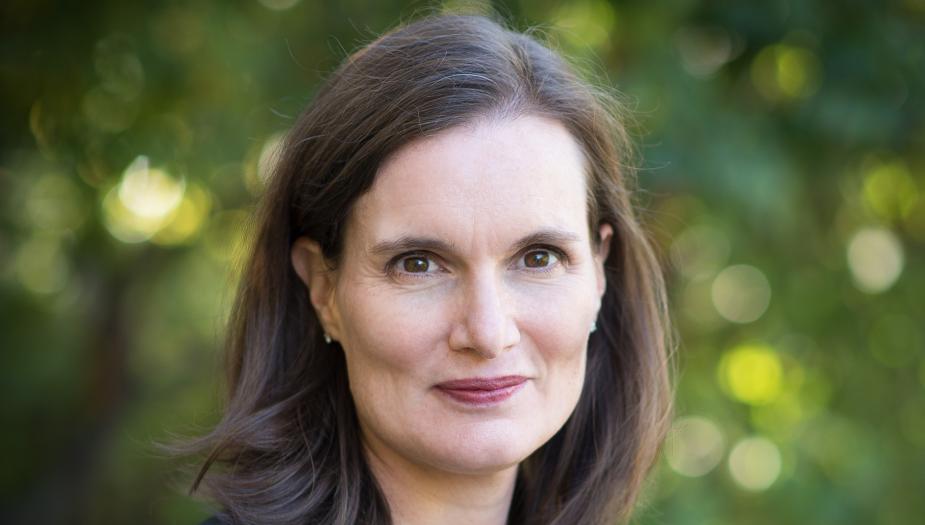
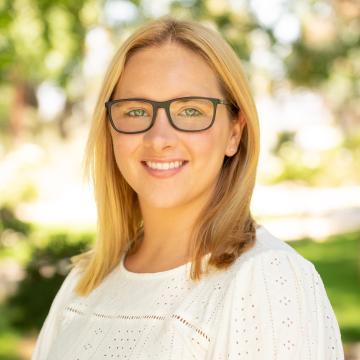

Alexandra Capasso, M.S., CGC is a licensed board-certified genetic counselor specializing in cancer genetics at City of Hope. She received her Master of Science in human genetics and genetic counseling from Keck Graduate Institute. Prior to completing her master’s degree, she earned her bachelor’s degree from the University of Connecticut. She is a member of the National Society of Genetic Counselors and the Southern California Genetic Counselors. Her background in the nonprofit sector with a focus on STEM education for underserved youth and advocating for health care equality shapes her research interests. These include increasing accessibility to cancer genetics services through alternative service delivery models and expanding genomics education for patients and providers. Her graduate school research investigated providers opinions on the importance of informed consent, barriers to pre-test counseling, and the utility of educational tools in cancer genetics.
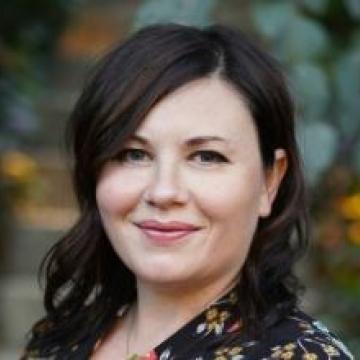

Ilana Solomon, Sc.M., M.A., is a manager of the Precision Medicine Program and a licensed board-certified genetic counselor specializing in cancer genetics. She received her master’s degree in genetic counseling from the Johns Hopkins/National Human Genome Research Institute. She joined City of Hope's Division of Clinical Cancer Genomics in 2013, where she has provided cancer genetics services for patients and families suspected of having a hereditary predisposition to cancer. Since 2019, she also manages and develops City of Hope’s Precision Medicine Program with the goal of providing all City of Hope patients with genomic-driven care. She has research interests in health care communication and implementation, genetic literacy and ELSI in genomics. She helped co-develop Helping Oncology Patients Explore (HOPE) Genomics: a patient-directed IT platform for cancer genome sequencing education and return of results. She is faculty for City of Hope's Intensive Course in Genetic Cancer Risk Assessment. She is an active member of the National Society of Genetic Counselors and Southern California Genetic Counselors.
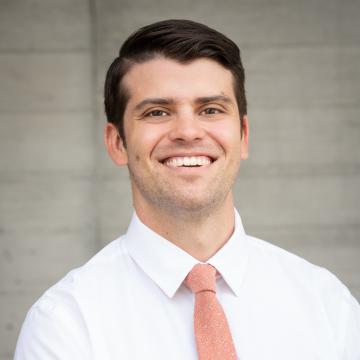

Michael Restrepo, M.S., is a licensed and certified genetic counselor working with City of Hope’s Division of Clinical Cancer Genomics since 2021. He earned his master’s degree in genetic counseling from the University of Michigan in 2021. His thesis work involved understanding how patients from diverse racial and ethnic backgrounds perceive the duty to recontact after receiving variants of uncertain significance on multigene panel testing. His research was selected for a poster presentation at the 2021 NSGC Annual Conference. Prior to initiating graduate training, he worked as a genetic counseling assistant for the Cancer Genetics and Prevention Program at the University of California San Francisco, where he helped implement a novel service delivery model to facilitate genetic testing for high-risk cancer patients. Originally from the Southern California area, he obtained his bachelor’s degree in integrative biology from the University of California Berkeley in 2011.
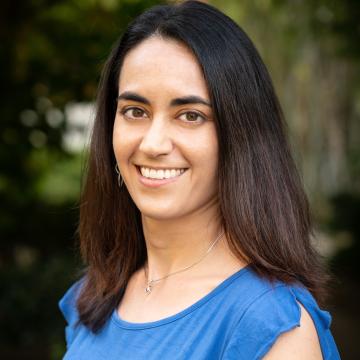

Sandra Dreike is a licensed board-certified genetic counselor who specializes in cancer genetics. She received her Master of Science degree is genetic counseling from University of California Irvine and her bachelor’s degree in biology from California Polytechnic State University, San Luis Obispo. She provides genetic counseling and cancer genetic risk assessments at City of Hope. In addition to patient care, she is interested in genetics education for other health care providers and also participates in genetics research. She is a member of the National Society of Genetic Counselors and Southern California Genetic Counselors. She joined City of Hope's Division of Clinical Cancer Genomics in 2019. She previously practiced as a genetic counselor in Honolulu, Hawaii, where she specialized in cancer genetics and general pediatric and adult genetics.
Susan Shehayeb, M.S., CGC, is a licensed board-certified genetic counselor specializing in cancer genetics. She has a Master of Science degree in genetic counseling from University of California Irvine. She joined City of Hope's Division of Clinical Cancer Genomics in 2017, having previously undergone clinical training at City of Hope. She also provides genetic counseling in Spanish and Arabic. Her clinical role has centered on widening patient access to genetic counseling and testing throughout City of Hope's network via City of Hope's South Pasadena site. Areas of clinical interest include gynecologic oncology. Her past research investigated lifestyle choices in the context of genetic counseling and genetic testing for cancer risk. She is a member of the National Society of Genetic Counselors and Southern California Genetic Counselors.
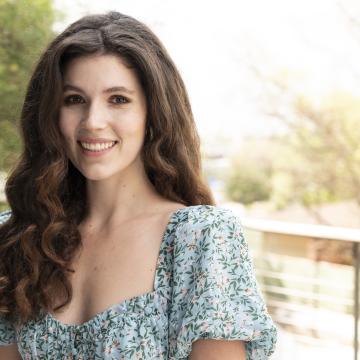

Madeline Currey is a clinical research associate in the Gray lab. She received a bachelor’s degree in biology from California State University Los Angeles, where she completed her undergraduate thesis in plant hydraulics and evolution. She joined the Gray lab in 2020, after a formative internship in the Division of Clinical Cancer Genomics. As an aspiring genetic counselor, she considers it an honor to be involved in research that increases the access and delivery of genetic services.
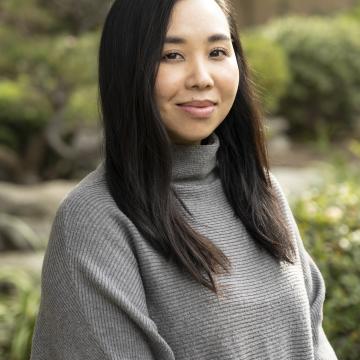

Marilan Luong, M.P.H., is a clinical research administrator in the Gray lab. She earned her undergraduate degree in food and nutrition (dietetics) with a minor in microbiology from California Polytechnic State University Pomona. She went on to earn a Master of Public Health in biostatistics and epidemiology from the University of Southern California. Her research areas of interest include health outcomes and health equity.
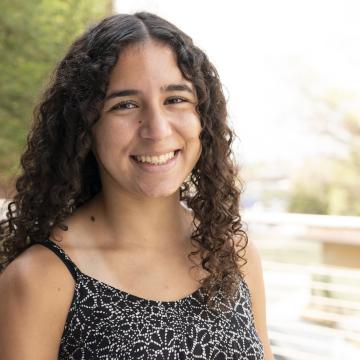

Sarah Labib is a clinical research associate in the Gray lab. She completed her Bachelor of Science at the University of California Santa Barbara with a major in biology and a minor in religious studies. She is interested in becoming a physician.
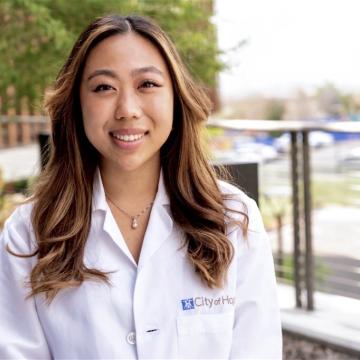

Sarah Tang (she/her) is a clinical research assistant in the Gray lab. She graduated with a Bachelor of Arts in psychology and integrative biology from the University of California Berkeley in 2022. She is excited to explore the implementation of precision medicine in oncology on Dr. Gray’s team and aspires to become a physician in the future.
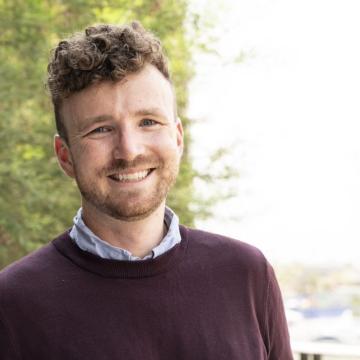

Michael Garcia is a data scientist in the Gray Lab. He graduated with a bachelor's degree in business and mathematics from Azusa Pacific University and earned his Master of Information and Data Science from Claremont Graduate University. When not working, he is outside mountain biking in the trails near City of Hope.
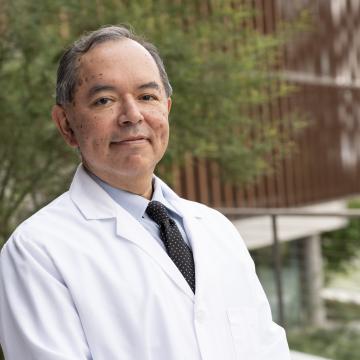

Frank Munoz, Ph.D., is a postdoctoral fellow in the Gray Lab. In 2016, he received his Ph.D.. in mind-body medicine from Saybrook University in California, with an emphasis on biological and environmental associations between mind, body and genes. His research interests include understanding Latinx cultural and systemic barriers to genetic testing (GT) and utilization of GT results for their cancer care. He also is working to develop educational tools to improve understanding of genomic information among Latinx cancer patients and their families.
Jenny Shen M.A.
Sam Wing, PhD
Ernesto Sosa, MPH, MSW
Lisa Lopez, RN
Melissa Sur
Vanessa Lozano Puello
Xiaoke (Coco) Zou, M.Sc.
Hengrui Hu, M.S.
Catherine Raquel
Katherine Uchida
Maria (Pilar) Ibarra-Noriega
Sofia Amaya
Widespread utilization of genomic sequencing in medicine creates an urgent need to educate providers and patients so that they can make informed medical decisions. In order to address this critical need, we have designed and are testing e-Health communication tools that will help providers and patients to better understand genomic data. Our intervention, HOPE-Genomics 1) educates patients about genomics, 2) enables direct-to-patient return-of-results, and 3) includes interactive features to facilitate patients’ use of and communication about genetic information. We hypothesize that the use of HOPE-Genomics will result in improved knowledge and better care. Further, to make genomic results accessible to non-English speakers, we are adapting and pilot testing our tool for Spanish and Mandarin speaking patients. In exploratory work, we will also incorporate moderated social networks into HOPE-Genomics and adapt the tool for other clinical situations.
Through the City of Hope Center for Precision Medicine INSPIRE study, we are dramatically increasing access to germline and somatic sequencing. Dr. Gray, Dr. Gruber and collaborators in the Center for Precision Medicine are analyzing INSPIRE data to determine the clinical utility of genetic testing and to determine how increased access to testing impacts patients' psychological outcomes following test results.
Approximately 15% of individuals with cancer have an inherited form of cancer due to a pathogenic variant in a cancer susceptibility gene. However, the majority of people who carry cancer susceptibility mutations are unaware of their risk. Dr. Gray, Professor Hampel, and collaborators are leading the Family HOPE study to ensure that more people know if they have inherited cancer risk. In Family HOPE we aim to increase “cascade” genetic testing through provider- mediated contact of family members. This new model of care promises to reach significantly more at-risk relatives and transform efforts in cancer control and prevention.
Massively parallel DNA sequencing promises to dramatically improve outcomes for hundreds of thousands of cancer patients yearly. However, in order to test patients at scale, innovations in informed consent are needed. In this study, we are developing web-based methods to augment informed consent for sequencing and exploring patient and provider reactions to the identification of unanticipated sequencing results.
Genomic testing profoundly impacts the care of cancer and high-risk patients when it helps to clarify a diagnosis, refine treatment options, enhance prognostication, or identify a familial risk syndrome. Despite the fact that genomic testing is standard-of-care for many patients there is significant underutilization of, and disparities in, genomic testing in ovarian cancer. In order to identify women with ovarian cancer who need genomic testing, Drs. Gray, Niland and collaborators developed and tested a natural language processing pipeline to rapidly and accurately extract genomic testing data from the electronic health record. This project serves as a model for how informatics tools can be leveraged to evaluate, and ultimately improve, cancer care.
Although great efforts have been made to advance lung cancer screening and early detection in smokers, lung cancer screening is not guideline-endorsed in at-risk individuals who have never-smoked. The goal of this study, led by Drs. Gray and Raz is to better characterize the frequency of germline cancer susceptibility mutations, risk factors, and biological phenotypes in individuals with lung cancer who would not have met screening criteria and determine the performance of liquid biopsy and low dose CT screening in individuals without lung cancer who may be at high risk of developing lung cancer.
Gray SW, O’Grady C, Karp L, Smith D, Schwartz JS, Hornik R, Armstrong K. Cancer Epidemiol, Biomarkers and Prev. 2009 Apr; 18(4): 1303-11. PMID: 19318436
Gray SW, Hicks-Courant K, Cronin A, Rollins BJ, Weeks JC. J Clin Oncol. 2014 May 1;32(13):1317-23. Epub 2014 Mar 24. PMID: 24663044
Gray SW, Martins Y, Feuerman LZ, Bernhardt BA, Biesecker BB, Christensen KD, Joffe S, Rini C, Veenstra D, McGuire AL. Genet Med. 2014 Oct;16(10):727-35. Epub 2014 Mar 13. PMID: 24625446
Jarvik GP, Amendola LM, Berg JS, Brothers K, Clayton EW, Chung W, Evans BJ, Evans JP, Fullerton SM, Gallego CJ, Garrison NA, Gray SW, Holm IA, Kullo IJ, Lehmann LS, McCarty C, Prows CA, Rehm HL, Sharp RR, Salama J, Sanderson S, Van Driest SL, Williams MS, Wolf SM, Wolf WA; eMERGE Act-ROR Committee and CERC Committee; CSER Act-ROR Working Group, Burke W. Am J Hum Genet. 2014 Jun 5;94 (6):818-26. Epub 2014 May 8. PMID: 24814192
Van Allen EM, Wagle N, Stojanov P, Perrin DL, Cibulskis K, Marlow S, Jane-Valbuena J, Friedrich DC, Kryukov G, Carter SL, McKenna A, Sivachenko A, Rosenberg M, Kiezun A, Voet D, Lawrence M, Lichtenstein LT, Gentry JG, Huang FW, Fostel J, Farlow D, Barbie D, Gandhi L, Lander ES, Gray SW, Joffe S, Janne P, Garber J, MacConaill L, Lindeman N, Rollins B, Kantoff P, Fisher SA, Gabriel S, Getz G, and Garraway LA. Nat Med. 2014 Jun;20 (6):682-8. Epub 2014 May 18. PMID: 24836576
Gray SW, Park ER, Najita J, Martins Y, Traeger L, Bair E, Gagne J, Garber J, Jänne PA, Lindeman N, Lowenstein C, Oliver N, Sholl L, Van Allen EM, Wagle N, Wood S, Garraway L, Joffe S. Genet Med. 2016 Oct;18(10):1011-9. Epub. 2016 Feb 11. PMID: 26866579
Gray SW, Gollust SE, Carere DA, Chen CA, Cronin A, Kalia SS, Rana HQ, Ruffin MT 4th, Wang C, Roberts JS, Green RC. J Clin Oncol. 2017 Feb 20;35(6):636-644. Epub 2016 Dec 12. PMID: 27937091
h. Gray SW, Gagan J, Cerami E, Cronin AM, Uno H, Oliver N, Lowenstein C, Leederman R, Revette A, Suarez A, Lee C, Bryan J, Sholl L, Van Allen EM. J Am Med Inform Assoc. 2018, 2018 May 1;25(5):458-464, Jan 5 [Epub ahead of print]. PMID: 29315417
Robinson JO, Wynn J, Biesecker B, Biesecker LG, Bernhardt B, Brothers KB, Chung WK, Christensen KD, Green RC, McGuire AL, Hart MR, Griesemer I, Patrick DL, Rini C, Veenstra D, Cronin AM, Gray SW. Genet Med. 2019 Dec;21(12):2781-2790. PMID: 31189963
Solomon IB, McGraw S, Shen J, Albayrak A, Alverovitz G, Davies M, Del Vecchio Fitz C, Freedman RA, Lopez LN, Sholl L, Van Allen E, Mortimer J, Fakih M, Pal S, Reckamp, Yuan, Gray SW. JCO Precis Oncol. 2020 Apr 14;4. PMID: 32923887
Gray SW, Ottesen RA, Currey M, Cristea M, Nikowitz J, Shehayeb S, LozanoV, Hom J, Kilburn J, Lopez LN, Wing S, Sosa E, Shen S, Morris M, Dilsizian B, Joseph T, Shen J, Adeimy C, Phillips T, Bahadini B, Niland JC. JCO Clinical Cancer Informatics, In Press
Our goal is to increase access to the highest quality precision cancer care for every patient. Given that cancer care delivery research is funded at much lower rates than other cancer research, support from foundations and other philanthropic sources helps to ensure that we can do this critical research.
We thank all of our wonderful donors for their past, current and future support.
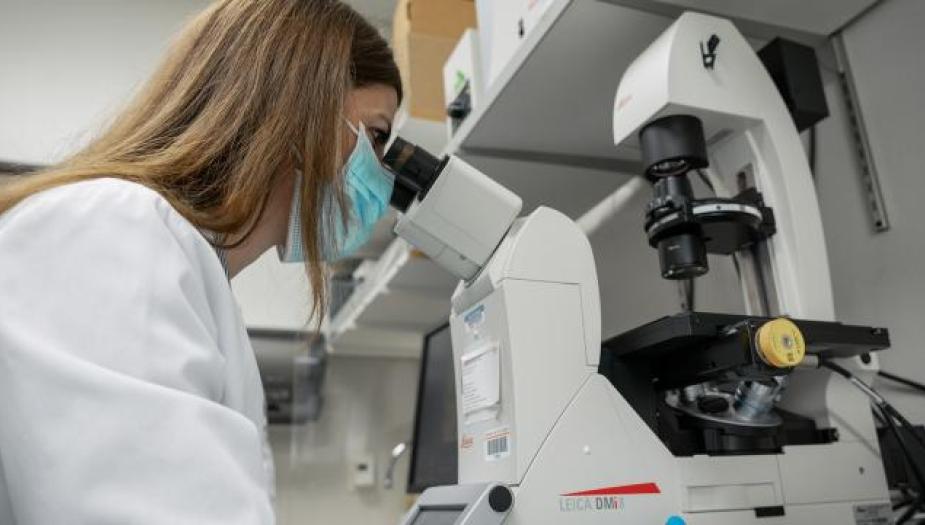
34.1293487, -117.9726643
Duarte, CA 91010